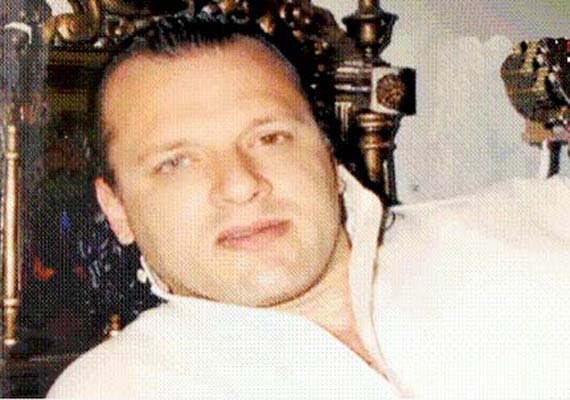Washington, Apr 12: David Headley aka Daood Gilani and Tahawwur Hussain Rana, the two Pakistani expat foot soldiers who allegedly planned and conducted the Mumbai recce before the 26/11 terrorist carnage have implicated the Pakistani government and its intelligence agency ISI in the ghastly attack, reports Times of India.
In court documents that have surfaced ahead of his upcoming trial in Chicago, Rana says his acts of providing material support to terrorists in the Mumbai attacks as alleged by US prosecutors ''were done at the behest of the Pakistani government and the ISI, not the Lashkar terrorist organization.'' The documents also cite Rana invoking his friend David Headley's Grand Jury testimony in which the latter too implicates ISI.
The startling disclosures, which forms part of Rana's defense, came even as ISI chief Shuja Pasha is visiting Washington DC with a laundry list of demands as the US tries to repair ties which have been severely damaged by the Raymond Davis episode. The US effort comes despite growing disquiet about ISI's role in fomenting terrorism. Still, the Obama administration is scrambling to control fallout from the court proceedings in an effort to save its ally from being publicly exposed as a state sponsor of terrorism.
The latest legal developments are not helping; in fact, they come at an embarrassing time for both sides.
The disclosure that Rana and Headley are implicating the Pakistani government and its intelligence agency in the Mumbai attack came about indirectly when an Illinois district court rejected Rana's attempt at what is known as a ''Public Authority Defense,'' in which the defendant essentially argues that he did something at the behest of a government or its official authority.
Proposing such a defense, Rana told the Illinois court that ''he acted pursuant to his actual or believed exercise of public authority on behalf of the government of Pakistan and the ISI.'' This defense, Rana argued audaciously, would give him immunity from criminal proceedings in United States courts under the Foreign Sovereign Immunities Act because ''the ISI has authority to act in India to protect Pakistan's national interests'' and he was acting at the behest of the ISI.
While noting Rana's argument ''that he is entitled to a public authority defense because he acted under the authority — whether actual or apparent — of the Pakistani government and the ISI,'' the court rejected the defense saying, ''Defendant cannot rely on the authority of a foreign government agency or official to authorize his violations of United States federal law.''
While the court rejected Rana's attempted defense on technical grounds, his implicating of the Pakistani government and its intelligence agencies strengthens the widely held view in India and elsewhere that Islamabad's reluctance to act against the perpetrators of attack points to official patronage of terrorism.
''Mr. Rana's trial threatens to lend an aura of credence to the suspicions of ISI complicity,'' Canada's Globe and Mail newspaper, which first reported the legal development, observed in an article (Rana is a Canadian citizen).
In its memorandum opinion and order, the court noted that Rana was citing David Headley's grand jury testimony in his attempt at Public Authority defense. According to the court document, Headley's testimony before the grand jury included disclosure of his meetings with Sajid and others in Lashkar. ''I also told him (the defendant Rana) about my meetings with Major Iqbal, and told him how I had been asked to perform espionage work for ISI," Headley says in his testimony.
However, in its order, the court rejected Rana's plea to subpoena the FBI and the State Department for ''any and all . . . cables originating from or transmitted to India, Pakistan or the United States,'' regarding the Mumbai attack and ''any connections between the ISI and Lashkar e Tayyiba.'' It said the defendant ''impermissibly uses the subpoenas as discovery tools, and his requests are more akin to fishing expeditions than requests for specific documents.''

